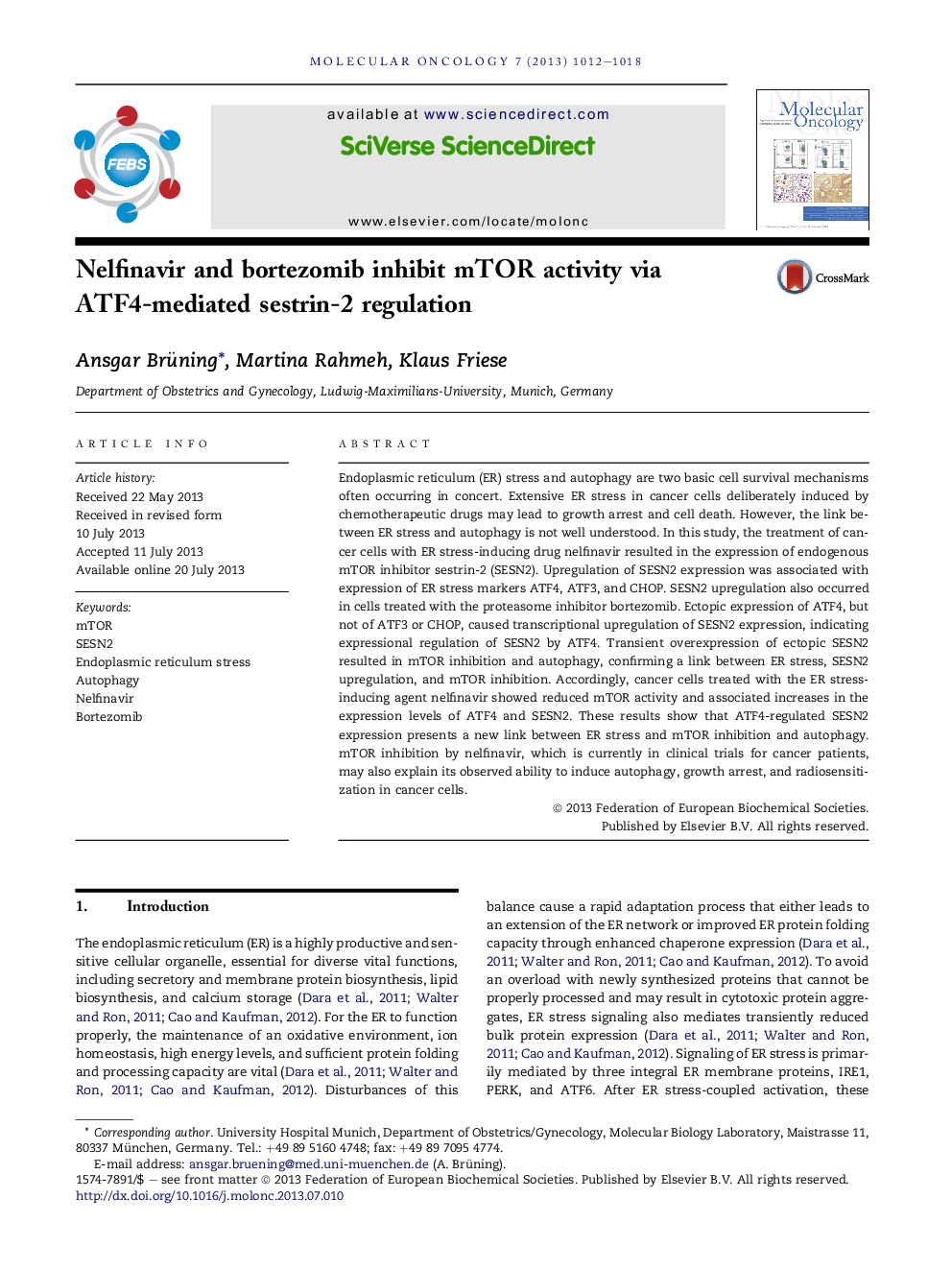| کد مقاله | کد نشریه | سال انتشار | مقاله انگلیسی | نسخه تمام متن |
|---|---|---|---|---|
| 2145613 | 1088806 | 2013 | 7 صفحه PDF | دانلود رایگان |

• Nelfinavir inhibits mTOR activity.
• Endoplasmic reticulum stress induces SESN2 expression.
• SESN2 is a target gene of the ATF4 transcription factor.
• Expressional regulation of SESN2 by ATF4 links endoplasmic reticulum stress to mTOR inhibition and autophagy.
Endoplasmic reticulum (ER) stress and autophagy are two basic cell survival mechanisms often occurring in concert. Extensive ER stress in cancer cells deliberately induced by chemotherapeutic drugs may lead to growth arrest and cell death. However, the link between ER stress and autophagy is not well understood. In this study, the treatment of cancer cells with ER stress-inducing drug nelfinavir resulted in the expression of endogenous mTOR inhibitor sestrin-2 (SESN2). Upregulation of SESN2 expression was associated with expression of ER stress markers ATF4, ATF3, and CHOP. SESN2 upregulation also occurred in cells treated with the proteasome inhibitor bortezomib. Ectopic expression of ATF4, but not of ATF3 or CHOP, caused transcriptional upregulation of SESN2 expression, indicating expressional regulation of SESN2 by ATF4. Transient overexpression of ectopic SESN2 resulted in mTOR inhibition and autophagy, confirming a link between ER stress, SESN2 upregulation, and mTOR inhibition. Accordingly, cancer cells treated with the ER stress-inducing agent nelfinavir showed reduced mTOR activity and associated increases in the expression levels of ATF4 and SESN2. These results show that ATF4-regulated SESN2 expression presents a new link between ER stress and mTOR inhibition and autophagy. mTOR inhibition by nelfinavir, which is currently in clinical trials for cancer patients, may also explain its observed ability to induce autophagy, growth arrest, and radiosensitization in cancer cells.
Journal: Molecular Oncology - Volume 7, Issue 6, December 2013, Pages 1012–1018